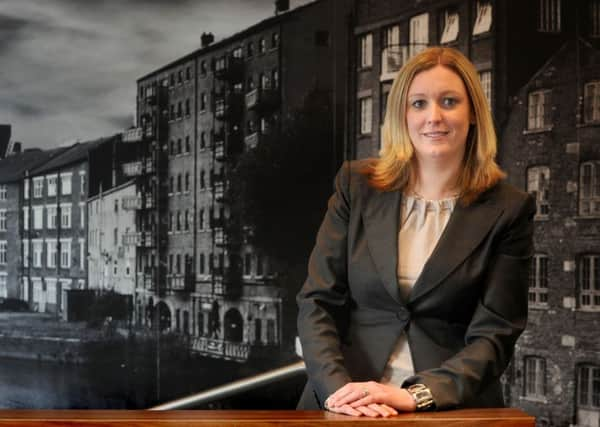Georgina Mitchell: Business has duty to offer real-life role models and inspire the young


Talking about first impressions, my advice was centred around an email address on a CV I had received in application for a graduate level job, which introduced the candidate as tinypants@...
Afterwards, I hoped my comments had inspired at least one pupil to think beyond the academic to what the world of work may expect of them, but it also brought home the importance of the relationship between businesses and their local schools from an early stage.
Advertisement
Hide AdAdvertisement
Hide AdAt a time when corporate social responsibility is high on the agenda, something as simple as allowing employees a little travelling time while they give up their lunch hour to go into a local school and listen to children read can bring rewards on both sides.
This is the aim of the Right to Read programme; initially piloted in Yorkshire in 1999. It proved so successful it was rolled out nationally and hasn’t lost momentum. Castleton Primary School in Lower Wortley, Leeds, where I am a governor, was one of the first schools to benefit and 17 years later a small group of staff from city-centre based stockbrokers Redmayne-Bentley still give up their lunch hour once a week to listen to pupils read.
The business benefits from the ‘feelgood factor’ volunteering can bring as staff see the impact of their small but effective contribution, while the children not only gain in literacy but it also improves their interpersonal skills, their self-confidence and provides positive role models.
Those role models are key to the relationship between businesses and schools. For young children, the question ‘what do you want to be when you grow up?’ is often answered with a career that is reflected by a TV cartoon character but these are limited in their scope and sadly have not shown the progression in gender equality that business has over the years.
Advertisement
Hide AdAdvertisement
Hide AdAs they get older then celebrity culture takes over – I am aware of at least one student who showed no interest in A-Levels simply because she was ‘going to win X-Factor’.
In reality, the lack of an exciting fancy dress outfit for the likes of an accountant, sales rep or purchasing manager means we are never likely to see the full range of potential careers represented on TV and it is therefore important that children have real life role models from a variety of industries and in a range of roles to broaden their horizons and raise their aspirations.
This is where local businesses come in. From allowing site visits for younger pupils, to work experience, careers talks or mentoring for older students, the ways in which businesses can help are many and varied and need not be complicated.
Normanton-based Warburtons for instance visited Castleton Primary in 2016, taking along with them the hair nets and aprons worn by staff on their site for them to dress up in. P&O Ferries’ team in Hull welcomed a group of children aboard the Pride of Rotterdam ferry. Another Leeds-based stockbroker, TD Waterhouse, sponsors the school sports kit and arranges visits for pupils to its offices.
Advertisement
Hide AdAdvertisement
Hide AdHigh up on the top floor, just one mile as the crow flies from the school, staff point out to the children that they can see where they usually spend their day from the office windows.
With the flashing screens and busy telephones the visit provides a glimpse into another world, but one from which they can see their own.
Finally, if all you can offer is your time, then schools are always looking for governors. An effective governing body has diverse representation from different backgrounds that provides different viewpoints and fills the knowledge gaps arising when trying to run a school like a business with ever tighter budgets and targets to meet.
Castleton has just doubled its intake and for the first time ever has gone from being oversubscribed to having spare spaces that it needs to take action to fill. It has no Press office or marketing department, just a very dedicated team of teachers and support staff who will do what they can whilst also doing their day-to-day jobs. However, my business experience allows them to draw upon my knowledge to make the most of what they do have and I know that by helping the school I am helping to secure the future of the children that it serves.
Georgina Mitchell is a non-executive director and governor of Castleton Primary School in Leeds.